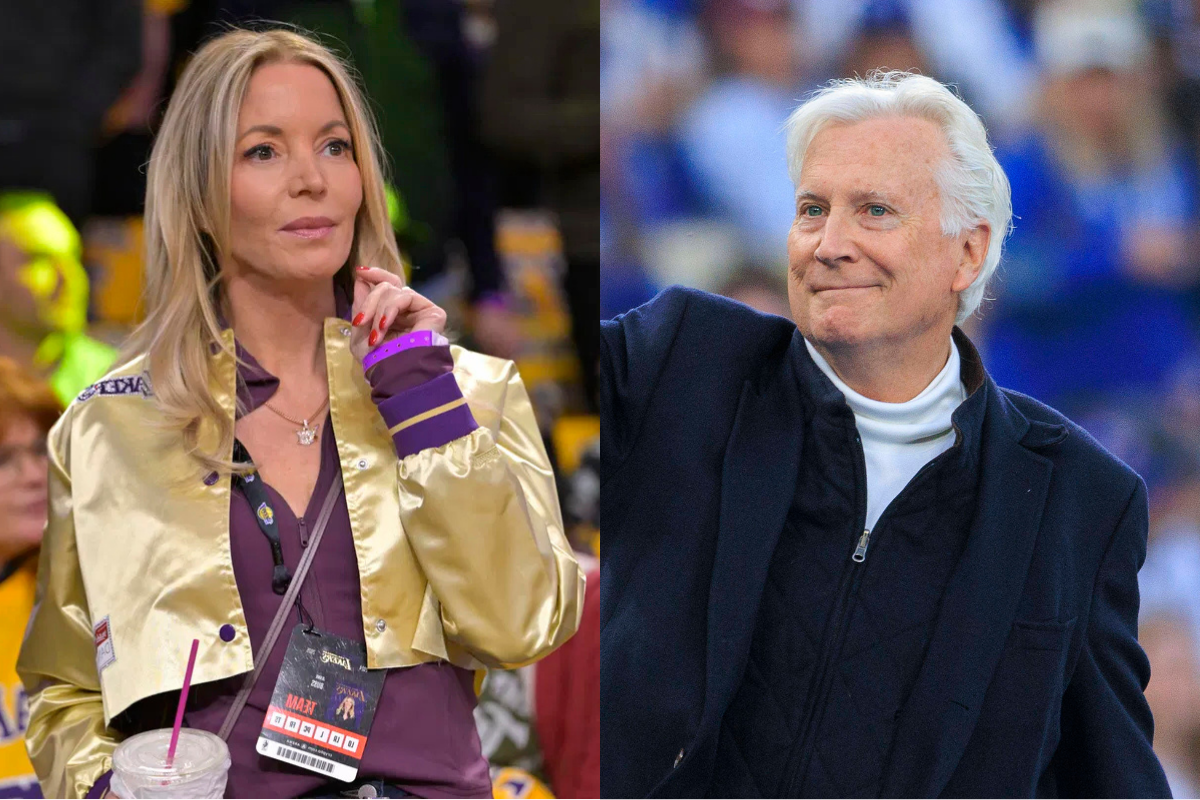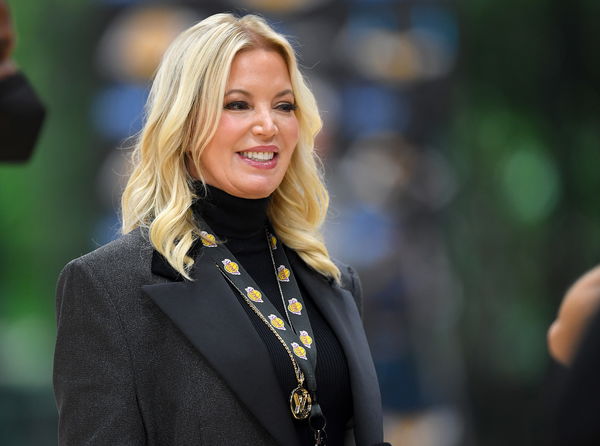



In Los Angeles, the stars are far from silver and shiny. Why? Because they’re donning in purple and gold now. In 2025, the Lakers, more than being relevant, are being… ridiculous! LeBron James is still dragging defenders into the paint at 40. Bronny’s throwing lobs to his dad. And somehow, after years of roster reshuffles and front-office poker, the LakeShow is a playoff threat again. Not a rebuilding year nor a farewell tour, this feels like a reboot and a revenge arc rolled into one.
Watch What’s Trending Now!
But here’s a wild thought, people – how did we even get here? Who set the table for this kind of madness? A father-son duo in purple and gold, a franchise still printing legacy like it’s 1987? Something to think about, right? To find the answer, you’ve gotta rewind. Not to Kobe, not to Magic… but to two guys in frozen Minnesota with a failing NBL team and a name inspired by local lakes.
Who was the first owner of the Lakers?
Ben Berger and Morris Chalfen might not have had Magic Johnson’s charisma or Jerry Buss’ Hollywood swagger, but they had vision. In 1947, they purchased the Detroit Gems of the National Basketball League and moved the team to Minneapolis, renaming them the “Lakers” in a nod to Minnesota’s nickname, “Land of 10,000 Lakes.” It wasn’t a glitzy deal, but it was foundational. From a failing franchise came a dynasty in embryo.
And mind you, this was pre-shot clock, pre-supermax contracts, and pre-Instagram. Basketball was still carving out its identity in the American sports psyche. Yet Berger and Chalfen’s Lakers quickly found relevance, capturing attention through dominance, because, of course, they did.
Under their control, the team joined the Basketball Association of America (BAA), which would merge with the NBL in 1949 to form what we now call the NBA. By then, the Lakers were already a problem as George Mikan, the NBA’s first true superstar, had arrived already in 1947. And with him came titles.
But ownership isn’t forever, and in 1957, the duo sold the team to Bob Short, a man who would take the franchise across the map to Los Angeles and into another era, as we all know it.
Who are the ex-owners of the Los Angeles Lakers?
Bob Short bought the team and didn’t waste time shaking up its identity. In 1960, he pulled the trigger on one of the boldest moves in league history: relocating the Lakers from Minneapolis to Los Angeles. The franchise traded lakes for limelight, and basketball, for the first time, got its Hollywood close-up. But Short’s run wasn’t all star-studded. He faced mounting financial strain and eventually sold the team in 1965.
Enter Jack Kent Cooke, a Canadian businessman with deep pockets and a flair for drama. Cooke gave the Lakers the Great Western Forum in 1967, one of the first true NBA arenas built with spectacle in mind. Under his ownership, legends like Jerry West, Elgin Baylor, and Wilt Chamberlain made regular appearances. By 1972, Cooke’s Lakers were champions, owning a 33-game win streak that still stands today. Cooke, though, would eventually pass the baton to a man who would redefine sports ownership altogether.
So when Jerry Buss bought the team in 1979, he didn’t just acquire a basketball franchise. No. He bought a cultural icon and decided to double down on the entertainment factor. Under his watch, the Lakers were a whole event. The “Showtime” Lakers danced through the 80s with Magic Johnson, Kareem Abdul-Jabbar, and Pat Riley setting up a full-court symphony. Buss wasn’t afraid of big names, big risks, or big parties. He changed how the NBA sold itself, mixing basketball with celebrity like it was a Hollywood cocktail.
And by the time Jerry Buss passed away in 2013, the team had hung 10 more banners, built rivalries, and redefined the idea of a sports dynasty. But the next chapter would need its own leading lady, namely Jeanie Buss. That’s right folks, it’s a whole damn family business at this point.
When did Jeanie Buss take over the Los Angeles Lakers?
Jeanie Buss, while inheriting the team, also inherited expectations, scrutiny, and a franchise that still expected to win every year. In 2013, following Jerry Buss’ death, she became the Lakers’ controlling owner and team president. But like any good Buss, she wasn’t interested in playing second fiddle. A true “Lakers governor” – the title she inherited, so to speak.

USA Today via Reuters
Sep 28, 2021; Los Angeles, CA, USA; Los Angeles Lakers owner Jeanie Buss attends media day at the UCLA Health and Training Center in El Segundo, Calif. Mandatory Credit: Jayne Kamin-Oncea-USA TODAY Sports
In 2017, after a public power struggle with her brothers, Jeanie secured court-approved full control of the team. It was a definitive, era-shifting moment. For the first time in Lakers history, a woman was at the helm, and she wasn’t blinking. Under her influence, the Lakers brought in LeBron James, made the blockbuster Anthony Davis trade, and captured the 2020 title inside the Disney Bubble. God sure is a woman!
But it wasn’t always smooth. Remember the coaching carousel and free agency misfires? Still, Jeanie weathered them with toughness and grace. Now in 2025, she finds herself with LeBron and Bronny headlining the roster, a new wave of stars, and a Lakers brand that somehow feels both retro and futuristic.
As Jeanie leads this era, she carries echoes of the past. Berger and Chalfen’s foresight. Short’s boldness. Cooke’s ambition. Her father’s flair. But she’s writing her own story now, one chapter at a time. But even Jeanie Buss is starting to look like she’s moving on from the Lakers, as Mark Walter is buckling up to join the list. The torch has been passed many times, from frozen lakes to sunny boulevards. And if the roster is any indication, the Lakers still sure know how to burn bright!

